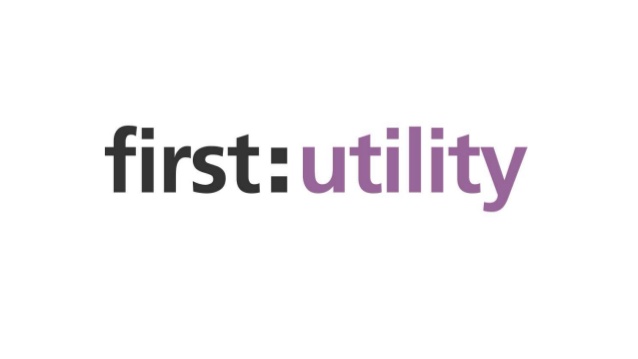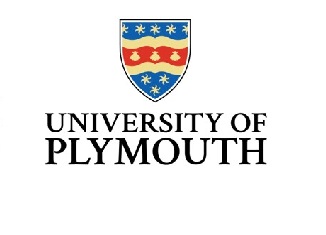Large companies and analysts that work with open source are fond of talking about vendor "sensitivity" when they are explaining why some customers are reluctant to go public about migrations away from proprietary software.
Speaking at an OASIS conference in London, Erwin Tenhumberg, a product marketing manager at Sun's Client Systems Group said that organisations are reluctant to talk about migrations to open source because they "do not want to jeopardise their relationship with larger vendors."
Andrea DiMaio, a research vice-president for Gartner, agrees: "Users try to keep quiet not [due to] the sensitivity of commercial vendors," he says.
Companies may also choose to keep a low profile about projects to avoid a time-consuming sales visit from proprietary vendors such as Microsoft, according to Aaron Seigo, who works as a consultant with projects deploying the desktop environment KDE.
"I've seen it happen first hand," says Seigo. "Microsoft sees it as a lost sale, so you'll get a phone call and they'll try to send in one of their regional sales people. He'll ask 'why are you running Linux? How many machines are you running?' and so on. From a sales intelligence perspective it makes sense, but most companies find that invasive."
Won't take no for an answer
It can be difficult to avoid such a visit, according to Seigo. "They will keep calling. Microsoft usually has very good sales people so they will be persistent — they won't take the first 'no' for an answer," he says.
Microsoft is also likely to get involved if a company goes public about an open source pilot project. Mark Taylor, the chief executive of UK open source consultancy Sirius Corporation, says that if Microsoft finds out that a public sector organisation is evaluating open source, it will use "every trick in the book" to get involved. He claims that almost every partner in the Open Source Academy, a UK government initiative to accelerate the adoption of open source software in the public sector, has been approached by Microsoft.
The licence fee conundrum
[? /*CMS poll(20004067) */ ?]Some organisations are taking advantage of Microsoft's interest in open source migrations, by carrying out public evaluations in the hope of getting a licence fee reduction. This strategy is often termed 'doing a Newham' after accusations that Newham Council used a Linux trial purely to force a better contract from Microsoft. A number of organisations that are willing to publicise a Linux pilot project are following this strategy, according to Gartner's DiMaio.
"A lot of the organisations that are doing public migration studies want to have a discount from proprietary vendors," says DiMaio.
Microsoft routinely denies that it will cut licence fees for those who threaten a move to open source, preferring instead the line that it can help customers cut costs by better tailoring licences to their needs.
But Volker Lendecke, a consultant at German open source consultancy SerNet, says Microsoft sometimes does a lot more than simply reduce its licence fees. He claims that one of his customers, who had migrated from Microsoft Windows NT4 to Samba across eight sites, was paid by Microsoft to migrate back to Windows and received five years of free support and licences.
However, while it seems Microsoft is ready to use the carrot to encourage companies around to its way of thinking there is also some anecdotal evidence that it can be prepared to use the stick. SerNet, which is involved in the European Commission's antitrust case against Microsoft, has passed on details of a case of Microsoft allegedly applying pressure to motivate a company not to publicise open source migrations.
Nobody willing to speak
"We have contacted the EC about these things, so they are aware of it," says Lendecke. "But nobody's willing to speak about it as everyone in the industry depends somewhat on Microsoft, so the information is of limited value to the European Commission — they need someone to stand up in front of the judge."
The European Commission would not comment on these specific cases or on the wider Microsoft antitrust case, but in September it reportedly said it was considering further charges against Microsoft, following "informal complaints".
The nature of these informal complaints is not yet known. But anecdotal evidence does suggest that companies come under pressure to keep quiet about their open source plans. "I know companies that are deploying Firefox or Thunderbird, but they aren't talking about it as they don't want to see an increase in their [Microsoft] Office licence price," said Mozilla Europe's president Tristan Nitot, speaking about migrations to Firefox, Mozilla's open source browser, at the FOSDEM open source software conference earlier this year. "Guys are really shy — it's the Munich Linux thing," he continued. "They start talking about it and suddenly Ballmer comes in and twists your arm until you cry."
An executive from a large vendor that works with open source confirmed that the fear of a licence fee increase puts some companies off publicising their migrations away from Microsoft software.
Microsoft: no penalties
[? /*CMS poll(20004067) */ ?]However, Sunny Jensen Charlebois, a senior product manager in Microsoft's Worldwide Licensing and Pricing division, denies that it would increase its license fees if a customer migrated to Firefox.
"If a Microsoft customer chooses to use an application such as Firefox, it is not a violation of the Windows XP SP2 End User Licensing Agreement and accordingly there is no penalty of any kind. We have no restrictions on running a non-Microsoft browser on Windows XP," says Charlebois.
Charlebois admits that licence prices can change if customers migrate to open source in part of their infrastructure. "Our volume discounts are established by volume and product pools (we have three pools: desktop applications, desktop operating systems, and servers); and prices will vary by each customer, depending on their agreement type, license type, and the number of software licences purchased," says Charlebois.
To audit, or not to audit?
Organisations can also be concerned about publicising a migration to open source, due to a perceived risk of this being followed by Microsoft asking to audit their software. Gavin Beckett, Bristol City Council's IT strategy manager, said at last month's OASIS conference in London that this is one of the reasons why companies are reluctant to go public about an open source migration.
"There is a worry that Microsoft will then say they would like to come and audit your software," said Beckett at the conference, although he added that this did not happen when Bristol announced its move from Microsoft Office to StarOffice last year.
Sirius' Taylor says that publicity around his clients' open source migrations has sometimes been followed shortly afterwards by a request for an audit by the Business Software Alliance (BSA), a trade group supported by a number of companies including Microsoft, which tackles the issue of unlicensed software worldwide.
"I have certainly seen timing coincidence with publicity and software audits," says Taylor. "This has happened with a reasonable proportion of my clients, but whether it is a cause and effect, who can say?"
One executive from a large vendor that works with open source confirmed that the fear of software audits can dissuade a company from publicising an open source project. However, other open source consultants Brucherseifer and Seigo both say this has not happened to any of their customers.
Microsoft's main focus is on working with customers to ensure they are compliant, says Charlebois: "Microsoft as a company does not encourage software reviews or audits to be the basis for its customer discussions. We are focused on engaging with more of a consultative approach around Software Asset Management (SAM), which results in not only the customer becoming compliant, but also allows the customer to have full control over their IT assets and therefore, be able to more effectively manage what they have and plan for future technology needs."
[? /*CMS poll(20004067) */ ?]Siobhan Carroll, BSA's regional manager for Northern Europe, says she is not aware of any link between software audits and open source migrations, telling ZDNet UK: "It is news to me that this is taking place".
Most of the leads that the BSA follows-up come through its Web site, which is primarily used by employees or former employees of companies misusing software, she claims. "Only a very, very small percentage come from our members."
The BSA does not carry out software audits itself, but "works on behalf of its member companies to investigate and take action against businesses using their products illegally," according to its Web site.
BSA and FAST
Another industry group that works against unlicensed software, the Federation Against Software Theft (FAST), only carries out audits at the request of the end user, rather than on behalf of software vendors. John Lovelock, the director general of FAST, says software licences often contain clauses that allow the vendor to request a software audit within a certain period of time, but the actual auditing is generally carried out by a reseller of the software.
James Governor, analyst at RedMonk, believes that proprietary vendors in general could use the fear of software audits to persuade companies to keep quiet about migrations. "Lets face it — are you more or less likely to be investigated by an auditing organisation if you have announced a commitment to open source?" he asks. "The fact is, if you're a proprietary vendor and a customer starts making noises about open source, how will you put the thumb screws on? You could say you may no longer be able to offer a particular discount, you could mention an audit..."
Governor points out that the management in organisations are often concerned about such audits, as even with the best of intentions companies find it hard to achieve full software compliance. Indeed, a study by the BSA last year found that 35 percent of software worldwide and 27 percent of software in the UK is unlicensed.
Why publicise?
[? /*CMS poll(20004067) */ ?]Although there appears to be a general reluctance to publicise open source migrations, open source advocates are keen for this to change. Mozilla's Nitot says that through offering to publicise their open source migrations, organisations can give something back to the open source community.
"I understand that large organisations often can't give money to open source projects, but at least they could give code, time or visibility," says Nitot. "If organisations publicised their migrations, then the whole world would realise that there is a significant tendency to people switching to open source tools."
GNOME Foundation director Neary agrees: "Since companies using open source software are getting a lot out of open source software, one way they can give back is through visibility. We'd like to have more visibility."
© 2005 ZDNet. Original article by Ingrid Marson
















































